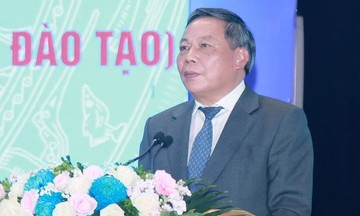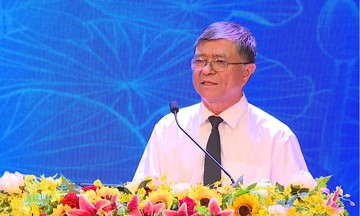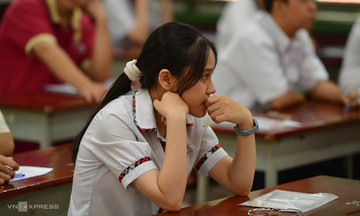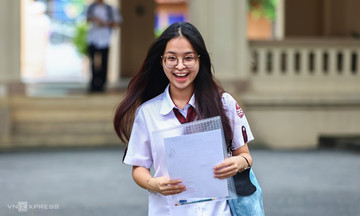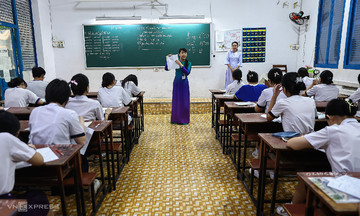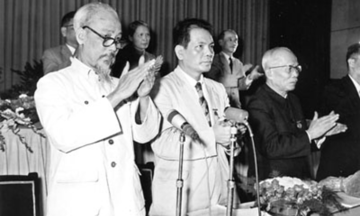FPT University is promoting a "multi-point learning" model that allows students to transfer between its five Vietnam campuses and participate in a variety of international programs. Nguyen Ha Thanh, Head of International Cooperation and Director of the FSEHI Semiconductor Circuit Training Center, explained that this model creates diverse learning opportunities for students.
As part of its "Go Global" strategy, FPT University has partnerships with hundreds of universities in 33 countries and territories. Students can participate in programs such as English 6 Overseas (one month), Semester Abroad (3 to 6 months), specialized courses (25-30 days), OJT Overseas internships (2.5 to 8 months), and short-term cultural exchange programs (4-14 days).
These programs are available in the US, Japan, South Korea, China, France, Singapore, Malaysia, India, Thailand, and the Philippines. Students can improve their foreign language skills, adapt to multicultural environments, broaden their global perspectives, and gain practical experience.
 |
Sam Nguyen, FPT University lecturer, and Nguyen Ha Thanh, Head of International Cooperation and Director of the FSEHI Semiconductor Circuit Training Center (from left), share insights during the program. Photo: FPTU |
Sam Nguyen, FPT University lecturer, and Nguyen Ha Thanh, Head of International Cooperation and Director of the FSEHI Semiconductor Circuit Training Center (from left), share insights during the program. Photo: FPTU
These flexible international activities are designed not to disrupt students' academic progress in Vietnam. Besides professional knowledge, students can meet international peers, become "cultural ambassadors," and promote the image of dynamic and confident Vietnamese students globally. This can provide a stepping stone for comprehensive development and increase their future competitiveness.
With campuses in Hanoi, Da Nang, Quy Nhon, Ho Chi Minh City, and Can Tho, FPT University allows students to transfer between locations through an internal system. They can study and live in different regions throughout their studies, expanding their understanding of local cultures and people.
"This is also a way for the university to link education with real-world experience rather than just textbooks," Ms. Thanh shared.
 |
Nguyen Ha Thanh, representative of FPT University, shares about the "multi-point learning" model. Photo: FPTU |
Nguyen Ha Thanh, representative of FPT University, shares about the "multi-point learning" model. Photo: FPTU
Sam Nguyen, an FPT University lecturer and former Digital Art Design student, studied at various domestic campuses and participated in an international exchange program. Starting in Ho Chi Minh City, she experienced Quy Nhon and Hanoi before joining a month-long English program in Malaysia. Each location offered new learning opportunities and challenges, especially language and cultural differences.
"Real-world English isn't limited to American or British accents like at school. Abroad, I had to adapt to global English, which made me more flexible in international environments," Ms. Nguyen shared.
She added that international programs improve English proficiency by providing real-life language use opportunities, from ordering food and asking for directions to taking taxis and buying train tickets. These everyday situations are more engaging and effective than traditional grammar lessons. Using English practically deepened her understanding of international communication and developed flexible thinking.
Ms. Nguyen's multi-point learning and international experience enhanced her application for a Master's scholarship at Cheng Kung University (Taiwan, China), contributing to her career development.
 |
Sam Nguyen, a former 12th-grade Digital Art Design student, at the exchange program. Photo: FPTU |
Sam Nguyen, a former 12th-grade Digital Art Design student, at the exchange program. Photo: FPTU
Ms. Thanh agreed that multi-point learning expands educational horizons and promotes a proactive learning style, empowering students to shape their journeys. The university provides support, from passport assistance and program counseling to choosing study abroad periods and visa applications. However, students make the final decisions and are responsible for their choices.
This philosophy reflects FPT University's educational approach: "Education is the organization and management of self-learning," encouraging critical thinking and creativity. These values are promoted through methods like the flipped classroom, where students study independently and use class time for discussion and problem-solving. This method, adopted by many lecturers including Ms. Nguyen, is influenced by international learning and working experiences.
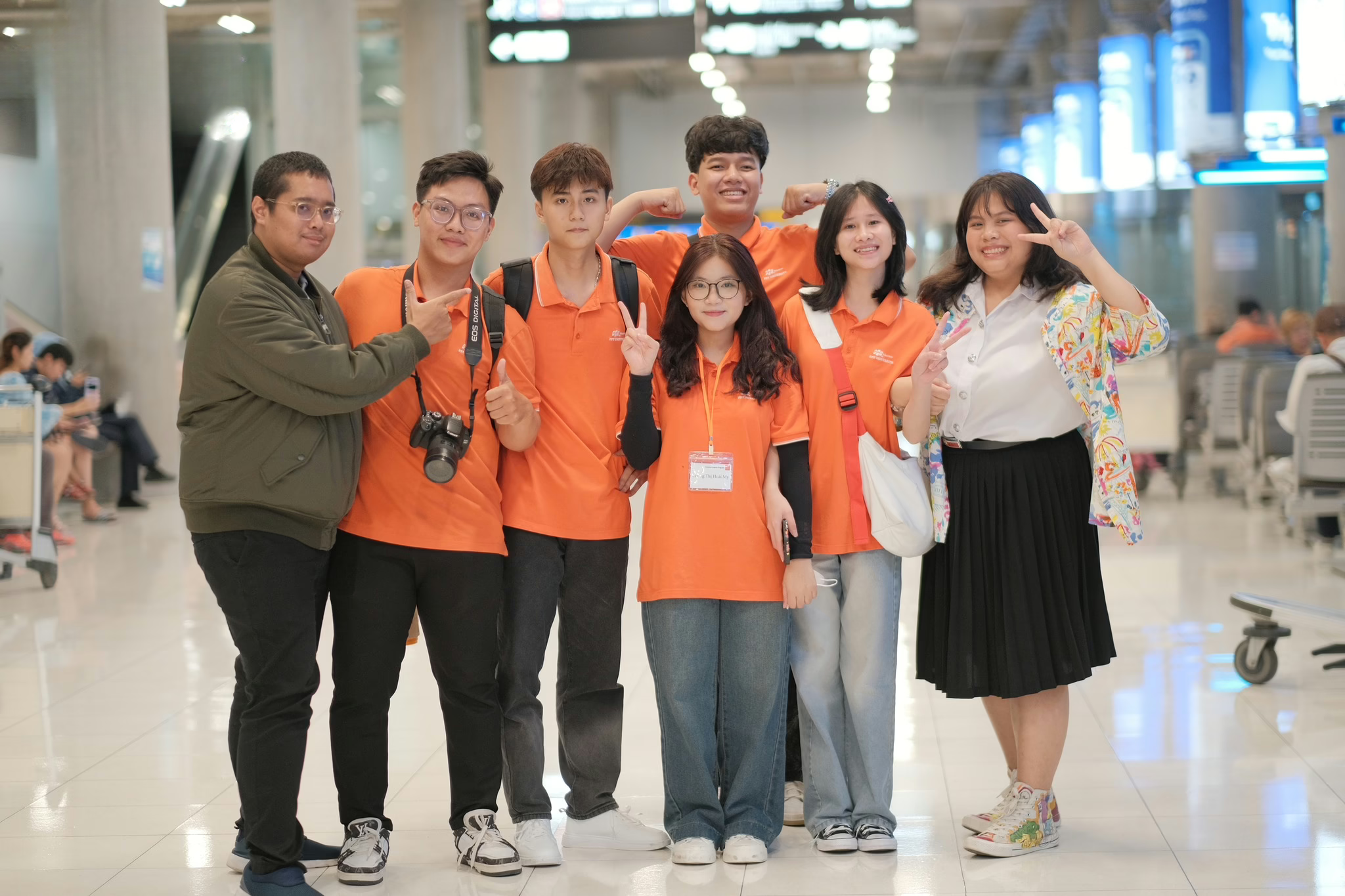 |
FPTU students on their way to study abroad. Photo: FPTU |
FPTU students on their way to study abroad. Photo: FPTU
The program guests also highlighted the financial flexibility of multi-point learning. Students can choose campuses with tuition and living costs that suit their budgets. For example, Quy Nhon and Can Tho have lower costs than Hanoi or Ho Chi Minh City, while maintaining consistent teaching quality, faculty, and learning resources across the system.
Some young people and parents might worry about students losing connections by moving between campuses. However, according to the university representative, this is an opportunity to gain individual experiences and share them with the community, creating a "resonant learning" ecosystem.
Nhat Le
FPT University Code: FPT
Program Codes for 24 Majors:
: Information Technology (7480201): Information Security, Digital Automotive Technology, Software Engineering, Digital Transformation, Digital Art Design, Semiconductor Circuit Design, Artificial Intelligence.
: Business Administration (7340101): Financial Technology (Fintech), Digital Marketing, International Business, Logistics and Global Supply Chain Management, Hotel Management, Tourism & Travel Services Management, Corporate Finance, Digital Banking - Finance, Investment Finance.
: Communication Technology (7320106): Public Relations, Multimedia Communication.
: Languages: English (7220201), Chinese - English (7220204), Korean - English (7220210), Japanese - English (7220209).
: Law (7380101): Economic Law, International Trade Law.



